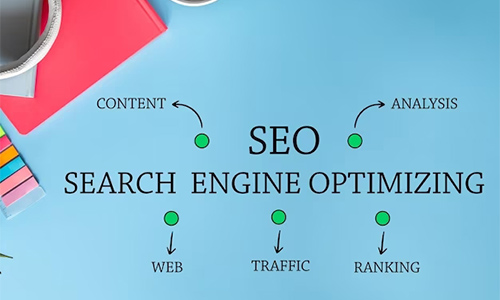Introduction
In the world of search engine optimization (SEO), there are two main categories to consider: On-Page SEO and Off-Page SEO. Both play a crucial role in determining a website’s visibility and ranking on search engine result pages (SERPs). Understanding the differences between these two strategies is essential for optimizing your website effectively. So, let’s dive in and explore the disparities between On-Page SEO and Off-Page SEO.
On-Page SEO: Optimizing Your Website Internally
When we talk about On-Page SEO, we are referring to the optimization efforts made directly on your website. This category includes all the techniques you can implement within your website’s structure and content to improve its visibility on search engines. Here are some key aspects of On-Page SEO:
1. Keyword Research
Choosing the right keywords is the foundation of any successful SEO strategy. By conducting thorough keyword research, you can identify the most relevant and valuable keywords for your website. These keywords should align with the search terms your target audience uses to find products or services similar to yours.
2. Content Optimization
Creating high-quality, informative, and engaging content is essential in On-Page SEO. It is important to include your target keywords organically throughout your content, including in headings, subheadings, and the body. Optimizing your content ensures that search engines can understand the relevance and value of your website’s information.
3. Meta Tags and Descriptions
Properly optimizing meta tags and descriptions can greatly impact your website’s visibility. Meta tags provide search engines with important information about your web pages, while meta descriptions provide concise summaries of your content in search engine results. Including relevant keywords in these elements can help search engines understand your content better and improve your chances of ranking higher.
4. URL Structure and Internal Linking
A well-structured URL and a strategic internal linking strategy can enhance the user experience and help search engines crawl and understand the structure of your website. Including descriptive keywords in your URLs and using internal links to connect relevant pages on your website can improve navigation, user engagement, and SEO.
Off-Page SEO: Establishing Authority and Trust
Unlike On-Page SEO, Off-Page SEO focuses on optimizing your website externally, beyond its content and structure. Off-Page SEO aims to build your website’s authority, credibility, and visibility by establishing a strong online presence. Here are some key elements of Off-Page SEO:
1. Link Building
Link building plays a crucial role in Off-Page SEO. It involves acquiring backlinks from other reputable websites that point back to your own. Search engines consider backlinks as “votes of confidence” from other websites. The more high-quality backlinks you have, the more authority and trust search engines attribute to your website.
2. Social Signals
In the era of social media, social signals are becoming increasingly important for SEO. Having a strong social media presence, receiving likes, shares, and comments on your content, and engaging with your audience on platforms like Facebook, Twitter, and LinkedIn can boost your website’s visibility and authority.
3. Online Reputation Management
Managing your online reputation is vital for Off-Page SEO. Positive reviews and testimonials, as well as good mentions on other websites and blogs, can significantly enhance your website’s trustworthiness and credibility. Monitoring and maintaining a positive online reputation can have a lasting impact on your website’s visibility and success.
4. Brand Mentions
Brand mentions, even without backlinks, can positively influence your website’s visibility and credibility. Search engines consider brand mentions as indicators of authority and relevance. Being mentioned on influential websites, blogs, and social media platforms can increase your website’s chances of ranking higher in search engine results.
Conclusion
While both On-Page SEO and Off-Page SEO are essential components of any successful SEO strategy, they focus on different aspects of optimization. On-Page SEO involves optimizing your website internally, including content, meta tags, and structure. Off-Page SEO, on the other hand, focuses on external factors such as link building, social signals, online reputation management, and brand mentions. By implementing a well-rounded SEO strategy that combines both On-Page and Off-Page techniques, you can improve your website’s visibility, authority, and trust, leading to higher rankings on search engine result pages.

